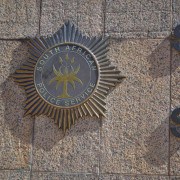|
Getting your Trinity Audio player ready...
|
Today Corruption Watch (CW) and the Institute for Security Studies (ISS) launched a joint public awareness campaign for transparency and merit-based selection in the upcoming appointments of the South African Police Service (Saps) national commissioner and the head of the Directorate for Priority Crime Investigations (the Hawks). Both positions are vacant and the minister of police has indicated that they will be filled in the next six months.
David Lewis, executive director of Corruption Watch, said: “Impunity, that is the ability of wealthy and politically connected individuals to get away with their evil deeds, is a direct consequence of years of incompetence and corruption in the senior leadership of the Saps and the Hawks, as well as other Saps units such as crime intelligence. This campaign is aimed at addressing this problem and, with sufficient public support, it could be a game changer in the battle against corruption.”
The head of the Saps is an immensely powerful post that can control everything about the police service, such as who gets investigated, who doesn’t, what resources are given to what priority crimes, or how the Saps is structured, said Gareth Newham, head of the Justice and Violence Prevention Programme at the ISS. “Similarly the Hawks boss will decide which cabinet minister gets investigated, or what powerful business family will or will not be thoroughly investigated using all the resources at the state’s disposal.”
Both organisations outlined their intention to advocate for improvements in the way critical appointments such as these are made. The campaign aims to increase awareness about the respective roles and the desired appointment process, as well as to allow for public engagement and participation, in accordance with the National Development Programme (NDP).
Currently it is far more difficult to become a police constable than it is to get the job of national police commissioner. The criteria to be a constable runs to 18 points, whereas there are only three requirements for the police commissioner – over 18 years of age, a South African citizen, and no criminal record.
“Personal integrity is the fulcrum on which ethical leadership rests. So we are not only concerned about the integrity of the process, but about the personal integrity of the appointees involved,”said Corruption Watch board member and Western Cape police ombudsman Vusi Pikoli. “When we have public trust and confidence in the police, only then will be able to have an effective partnership between the police and the public.”
“If you don’t trust the police, they cannot work with the public to improve public safety,” said Newham. “They should be consistently and constantly trying to ensure that the public see them as trained professionals who act fairly and uphold everybody’s right.”
A transparent and competitive appointment process is provided for in the NDP, which was adopted in 2012. The National Planning Commission, which drafted the plan, identified a serial crisis of top management as the root cause of most of the problems facing the police in South Africa.
Data from the police’s own annual report show a drastic decline in police performance in the past five years. Fewer convictions, less visible policing and declining rates of cases reported – largely because of trust issues – have become the norm, while the operating budget has increased, along with the murder and aggravated robbery rate, and number of civil claims made against the police.
Able to lead by example
The person who has the most power in the organisation, who sets the tone, and who provides the ethical guidance in the organisation, must be appointed through a transparent process using merit-based criteria.
There is no better screening and vetting of such important appointees than through a publicly transparent process, Pikoli said, and this does not mean that the powers of the president to make the final appointment will be watered down.
Pikoli said that his appointment in 2005, as national director of public prosecutions, took place via a phone call “out of the blue” from then-president Thabo Mbeki, a visit to Mahlamba Ndlopfu, the presidential residence, and a comment from Mbeki that he and his deputy Kgalema Motlanthe wanted Pikoli to go to the National Prosecuting Authority. There was no appointment process, no consultation – “It was a fait accompli,” said Pikoli.
Transparent appointment process the way to go
CW and ISS have reviewed the previous appointment processes, which have resulted in the employment of highly unsuitable candidates. To avoid a similar outcome with the current positions, CW and ISS recommend a revised, more efficient and transparent appointment process.
This proposed appointment process includes the following:
- The establishment of a police leadership selection panel by the minister of police, with advice from the Civilian Secretariat of Police and the parliamentary Portfolio Committee of Police;
- The inclusion on the panel of objective individuals able to review candidates fairly in relation to set criteria. These individuals could include: a retired police general, an expert in criminal and police law, representatives from Treasury and the Public Service Commission, an ethics expert;
- The development of clear merit-based criteria for both the SAPS and Hawks positions, drawing from international standards and best practices and representatives of civil society with first-hand knowledge of policing;
- Public advertising of the posts by the minister of police for a month-long period;
- Receipt of applications by the Civilian Secretariat, which will then send qualified shortlisted candidates with security clearance to the panel;
- Public interviews of shortlisted candidates by the panel, with the inclusion of public submissions;
- Scoring of shortlisted candidates by the panel;
- Agreement of a maximum of five candidates for each post;
- Submission of a shortlist of the most appropriate candidates for SAPS national commissioner to the president for him to appoint the new commissioner; and
- Submission of shortlisted candidates for the head of the Hawks to the minister of police to make the appointment.
Read the brochure on Issuu:







